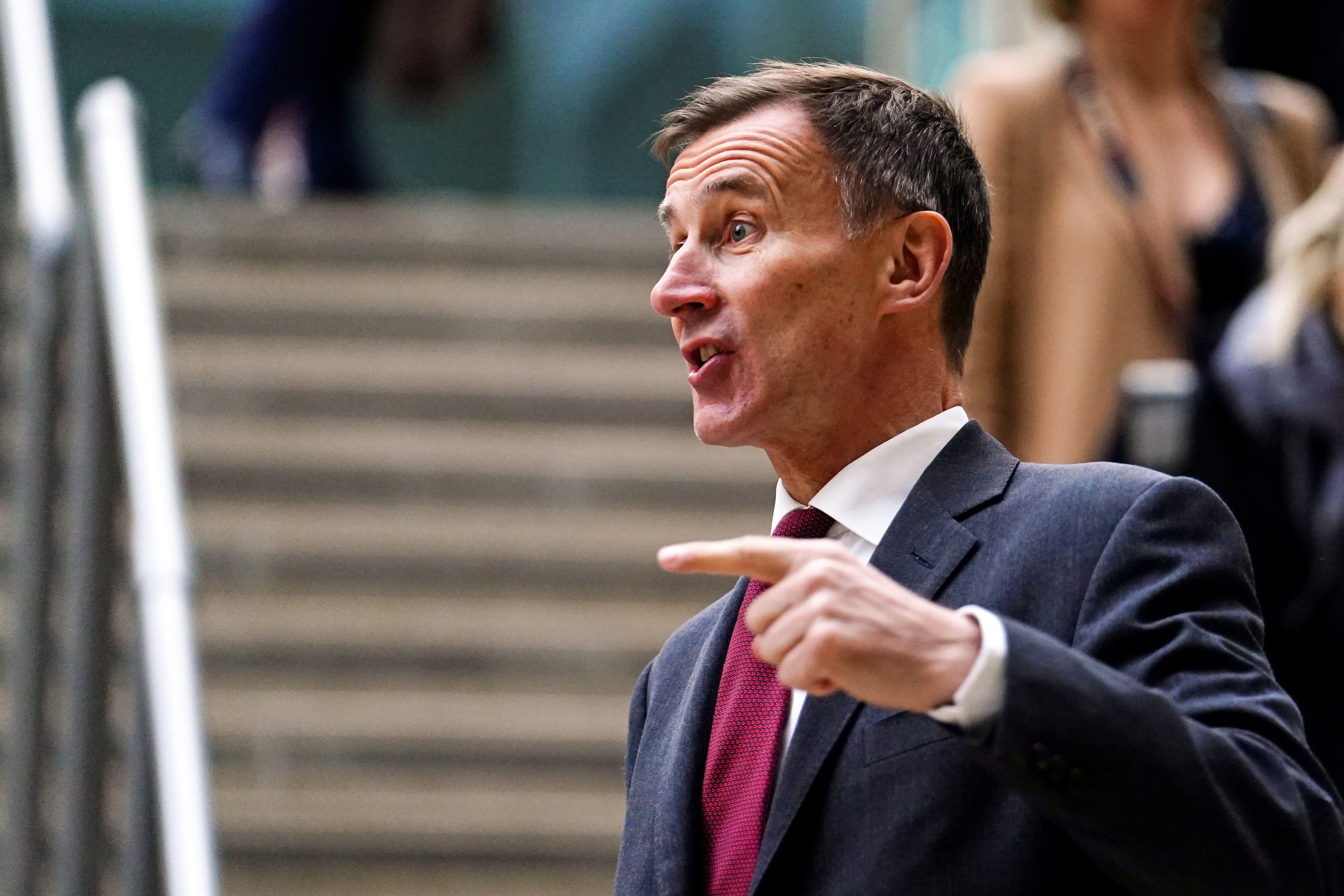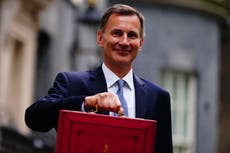Tory backlash as one in five will be paying higher income tax rate by 2027
One in four teachers and one in eight nurses will be paying 40p rate in biggest tax rise since 1970s, experts warn

Rishi Sunak faces backlash over “stealth” tax hikes which will drag one in five taxpayers into the 40p rate of income tax within years, experts have warned.
The prime minister’s decision to freeze income tax thresholds means one in four teachers and more than one in eight nurses will be paying the higher income tax rate by 2027, analysis by the influential Institute for Fiscal Studies (IFS) think tank shows.
By 2027, the number of people paying income tax at 40 per cent or more will hit 7.8 million, the IFS said. That is almost four times as high as the share of adults paying higher rates in the early 1990s – when virtually no nurses and just one in sixteen teachers paid the higher rate.
Researchers at the think tank said it represented a “seismic shift” and would be the “biggest tax-raising measure since Geoffrey Howe doubled VAT in 1979”.
Workers face the higher 40 per cent rate of income tax on earnings between £50,271 and £125,140. In March 2021, then chancellor Mr Sunak announced the threshold at which taxpayers are charged the higher rate will be frozen until 2026. Chancellor Jeremy Hunt has since extended this for a further two years.

IFS economist Isaac Delestre said: “For income tax, the story of the last 30 years has been one of higher-rate tax going from being something reserved for only the very richest, to something that a much larger proportion of adults can expect to encounter.”
Former Tory leader Sir Iain Duncan Smith told The Independent the government “cannot go on like this”. “Higher taxes, in the end, mean the economy will do worse because there is less money flowing back in,” he added.
Sir Iain said: “People themselves will also be demotivated from moving on up to be successful and do better, as they find they will pay more tax even before they get going.
“All in all, this constant attempt to freeze the threshold has damaged innovation and enterprise in the UK over a number of years – and it needs to be stopped and reversed.”
The senior backbencher added that high taxes have become a “huge” problem among Conservative MPs. “It is one of the things that was thrown at us during the local elections,” Sir Iain said.
Former treasury minister John Redwood told The Independent that frozen tax thresholds are “hitting people hard”. “People are overtaxed. We need to grow the economy more to boost incomes per head. The squeeze on people’s spending power is too great, with frozen thresholds hitting people hard,” he added.
The IFS said higher rates of income tax have gone in the past four decades from being reserved to those “with the very highest incomes” to impacting “a far more substantial” portion of society.
For the 40 per cent income tax rate to affect the same portion of people as in 1991, the threshold would need to be around £100,000 – almost double its current level.
The Institute for Economic Affairs said workers paying the higher rate of income tax is “approaching the norm”.
“The higher rate of tax was initially envisioned to capture an enhanced revenue stream from super-high earners. Managing, at some point, to get your salary to above £50,000 surely can’t be said to be in that category,” director general Mark Littlewood told The Independent.
And Mr Delestre said freezing thresholds leaves the income tax system “hostage to the vagaries of inflation”.
“Whether or not the scope of these higher rates should be expanded is a political choice as much as an economic one, but achieving it with a freeze leaves the income tax system hostage to the vagaries of inflation – the higher inflation turns out to be, the bigger impact the freeze will have,” he said.
A Treasury spokesperson said: “After borrowing hundreds of billions to support the economy during the pandemic and Putin’s energy shock, we had to take some difficult decisions to repair the public finances and get debt falling. It is vital we stick to this plan to halve inflation this year and get our economy growing again.
“To support working families, we have doubled the tax-free personal allowance, taking three million of the lowest earners out of paying income tax altogether.”





Join our commenting forum
Join thought-provoking conversations, follow other Independent readers and see their replies
Comments